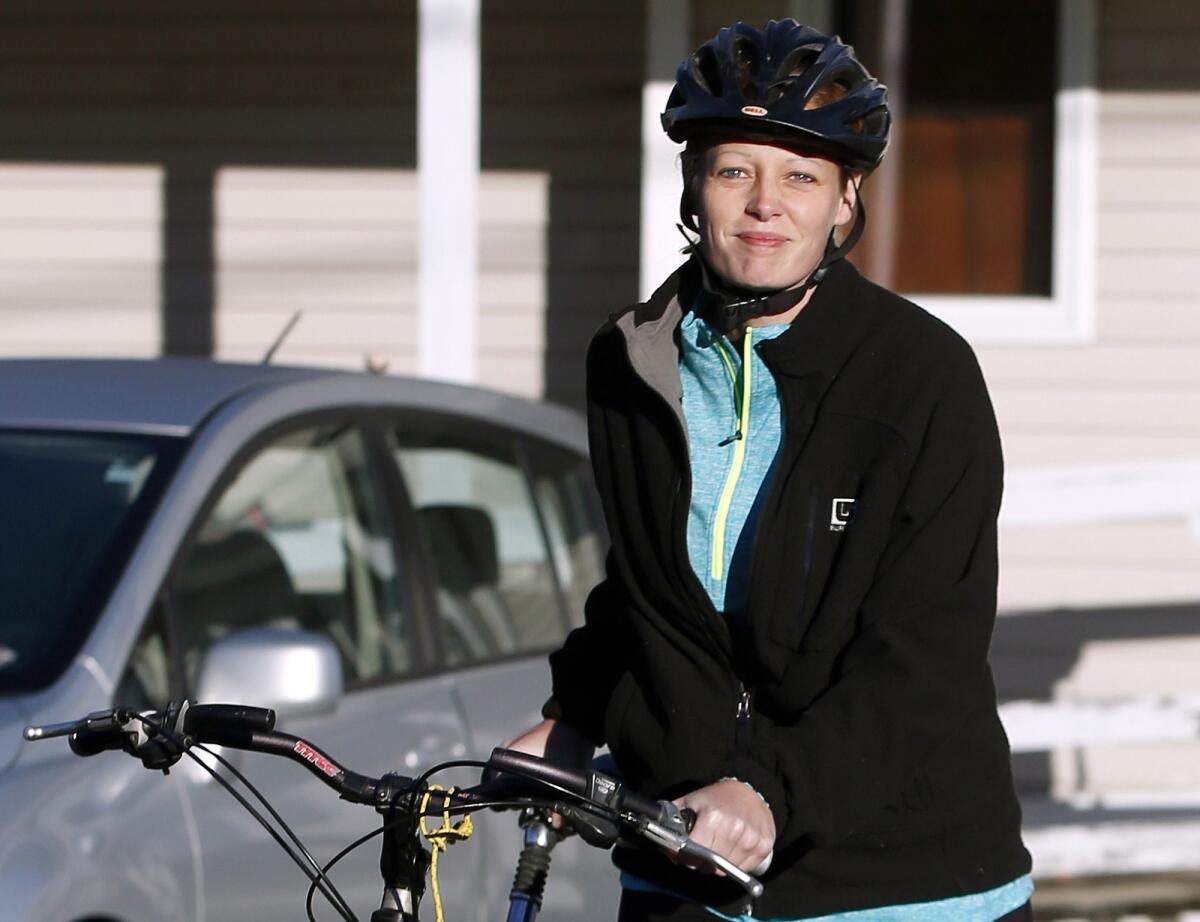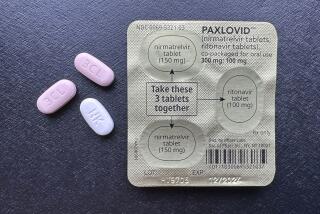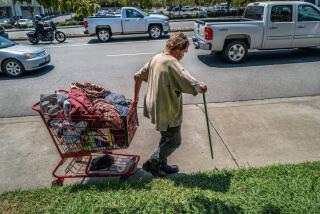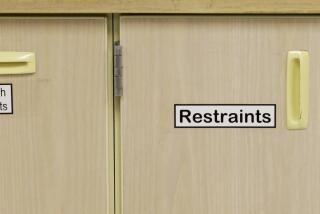Opinion: How Ebola nurse Kaci Hickox sullied her heroine status

Maine officials are seeking court authority to give keep Kaci Hickox indoors after she refused to obey their imposition of a quarantine on her. In the meantime, though, she should stop acting like she’s being forced to undergo two weeks of unconstitutional torture.
Frankly, in matters Ebola, it’s hard to find anyone who makes perfect sense. Hickox -- the nurse who served a noble tour of duty in Ebola-stricken Sierra Leone and gained public sympathy when she was quarantined under unfair and terrible conditions upon her arrival in New Jersey -- has a good point when she says that the science shows Ebola is not contagious until symptoms appear. She remains without symptoms.
At the same time, home in Maine, she is violating quarantine, going out bicycling. Again, she’s not going to sicken anyone on a bike. But neither is she entitled to write the rules of her quarantine.
Moreover, she has said that she could see her way clear to not coming in close contact with the public -- for example, she said, she would be willing to agree to steering clear of public transit.
But if she is so utterly certain that she would not put the public in danger as long as she monitors her health carefully, why would she agree to that? That’s like admitting that Maine health authorities might have a point about what it takes to keep the public safe.
It makes sense for state authorities to be flexible about their rules for returning healthcare workers. They might want to treat people who weren’t always in protective garb with stronger quarantine rules than those who were, for example. California has the right idea with the rules it announced Wednesday; the question will be how smart it will be about actually implementing those rules.
Yes, people overrate the danger of major Ebola contagion in this country. But when scientists talk about symptomatic patients, how symptomatic do they have to be? Not all patients get a fever, so what if they’re just feeling fatigued -- which could be brushed off as a natural consequence of the psychologically and physically stressful work of caring for frightened, dying and truly contagious people -- or a little off? Would they all adhere strictly to rules about staying home at that point and immediately calling authorities? Another issue that has to be taken into account is the tracking and cleaning that’s performed on all the places they’ve been for the 24 hours before they noticed symptoms. There are times when the impact on the many outweighs the impact on the one.
The job that Hickox performed was truly admirable, humanitarian, life-saving, among the highest kinds of service one can do for others -- how many of us could honestly say we’d do the same? She doesn’t deserve the “It’s all about me” backlash that’s been directed at her. If it were all about her, she wouldn’t have risked herself by going to Sierra Leone in the first place.
But having gone there, health workers might return to protocols they find ridiculous in the much healthier and wealthier United States. Confronted with a novel situation, the country has been reacting bumpily to the business of protecting the public without giving in to unwarranted anxiety. In the absence of a coherent strategy at home, though, returned volunteers cannot make up individual quarantine protocols. Many health experts have expressed concern that overly harsh quarantine rules might discourage people from service in Africa. But a public backlash here could also be dangerous to the fight against Ebola. People are increasingly cynical about the assurances of federal health officials who have not shown that they’re on top of the situation at home.
Follow the Opinion section on Twitter @latimesopinion
More to Read
A cure for the common opinion
Get thought-provoking perspectives with our weekly newsletter.
You may occasionally receive promotional content from the Los Angeles Times.







